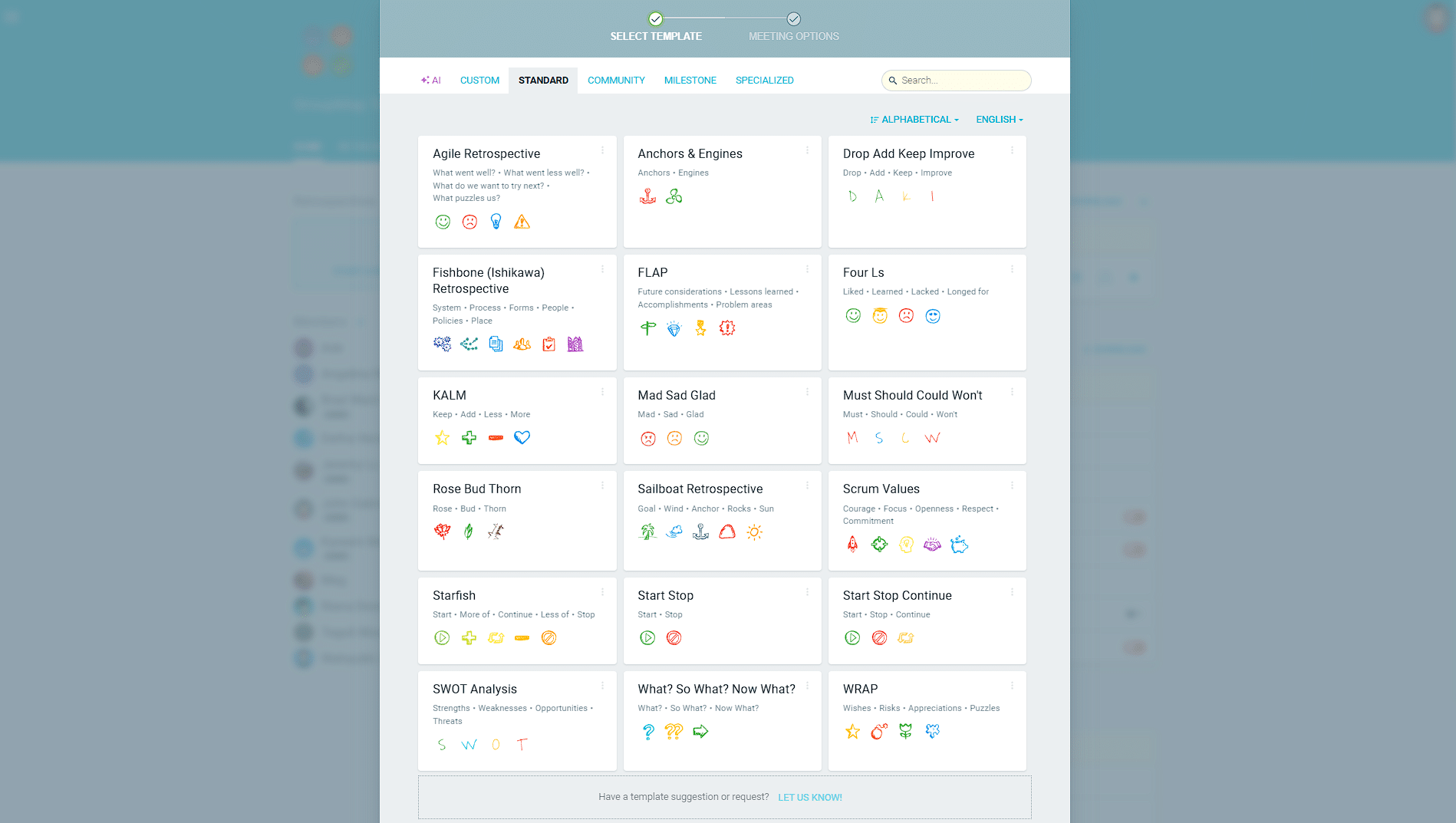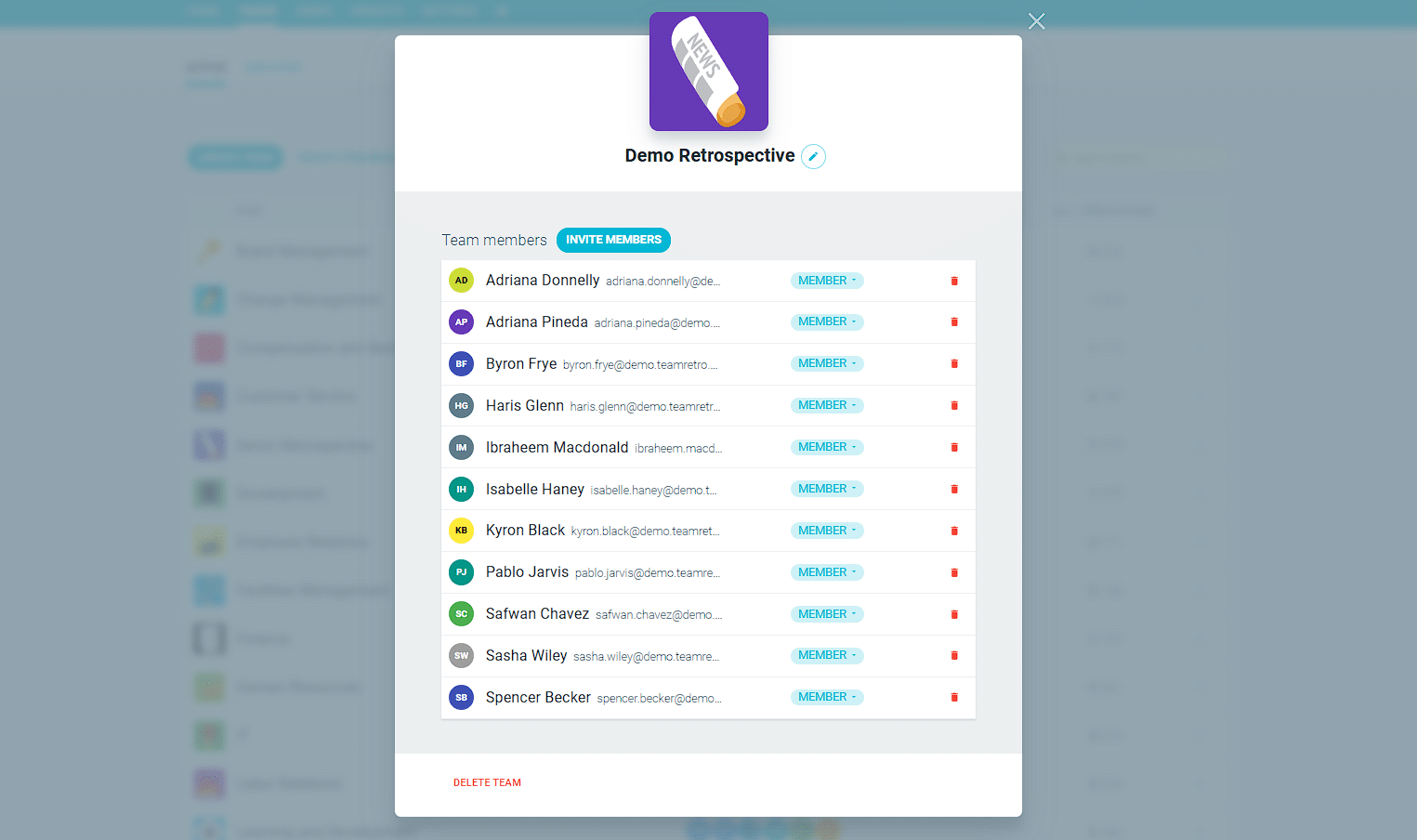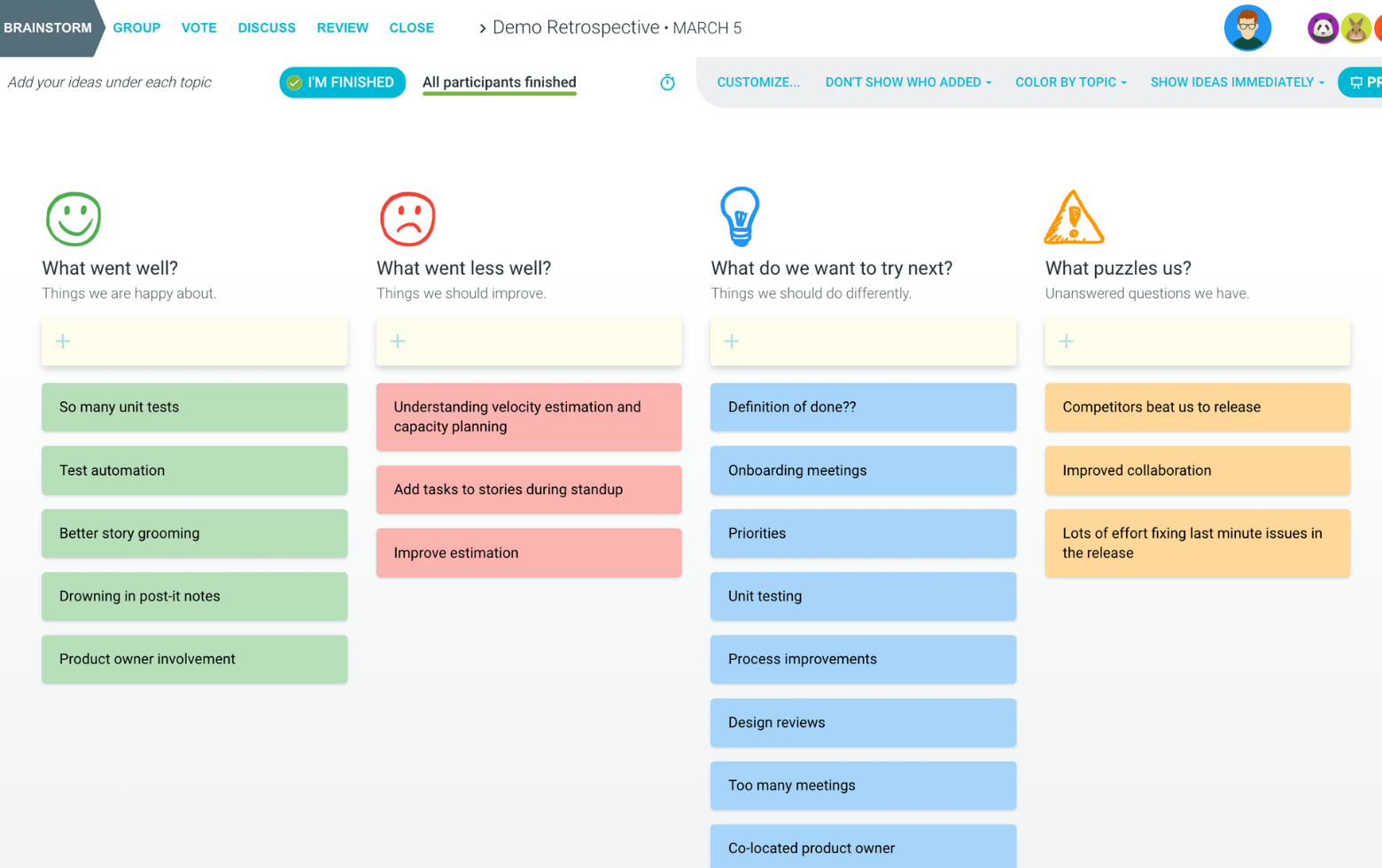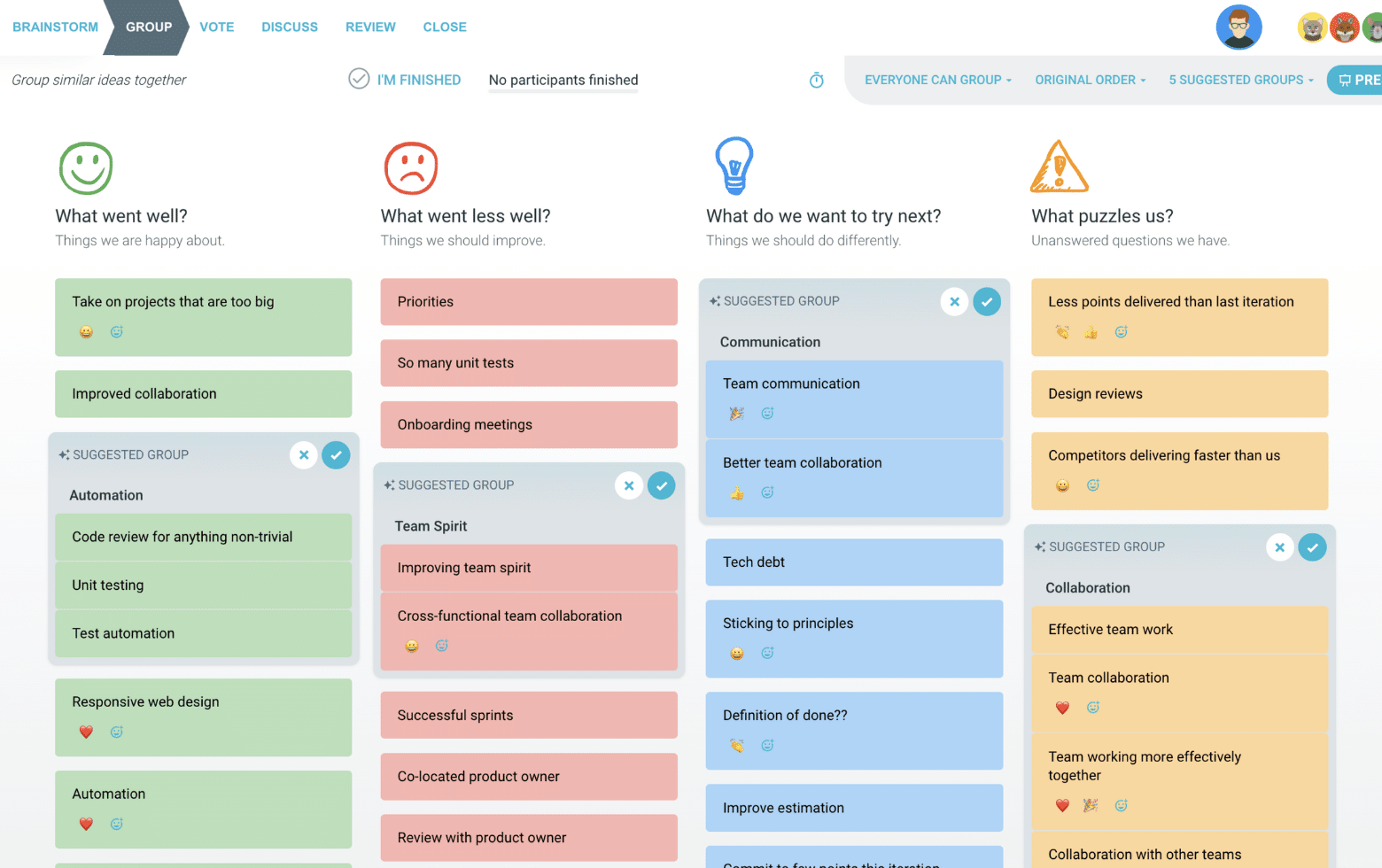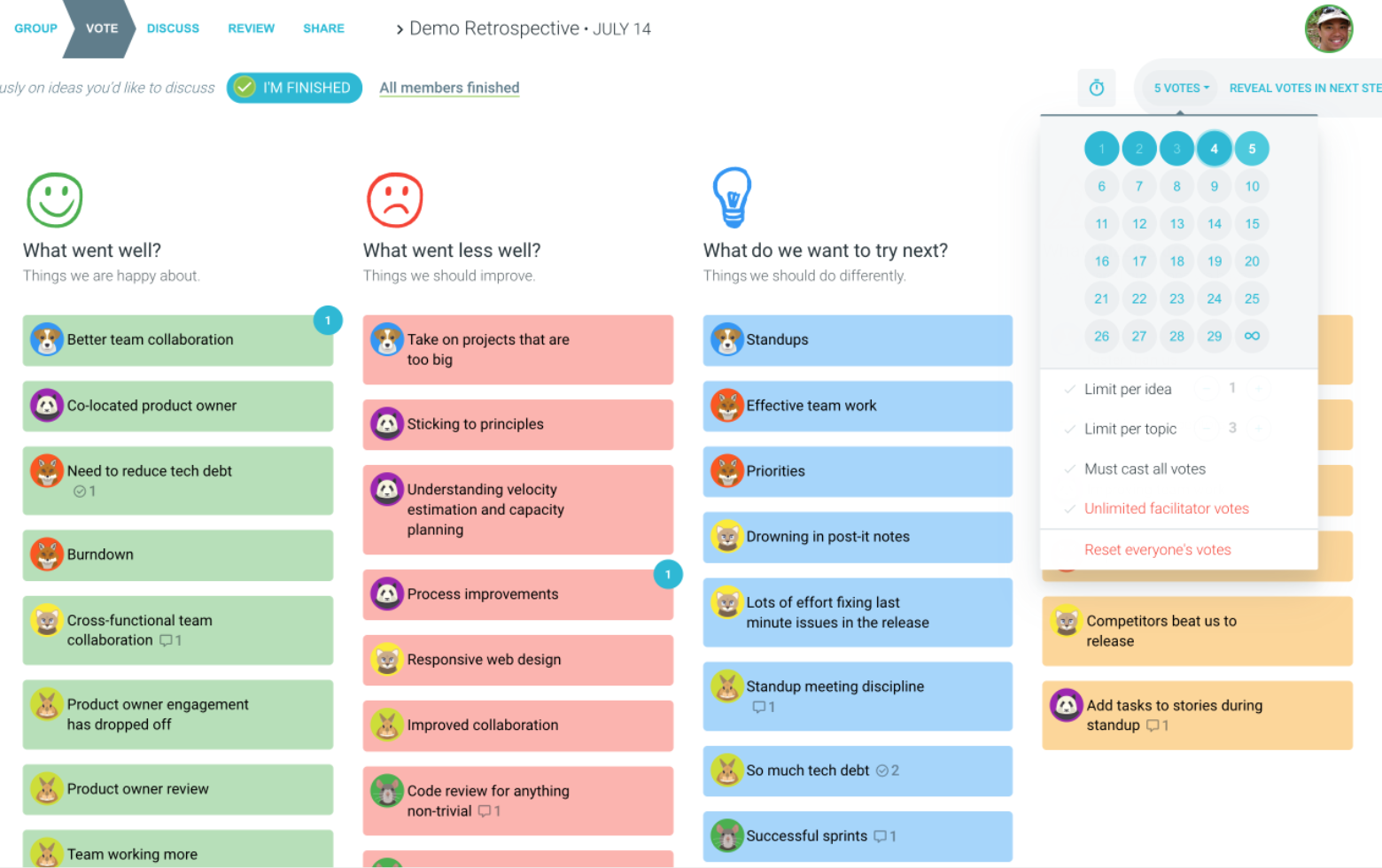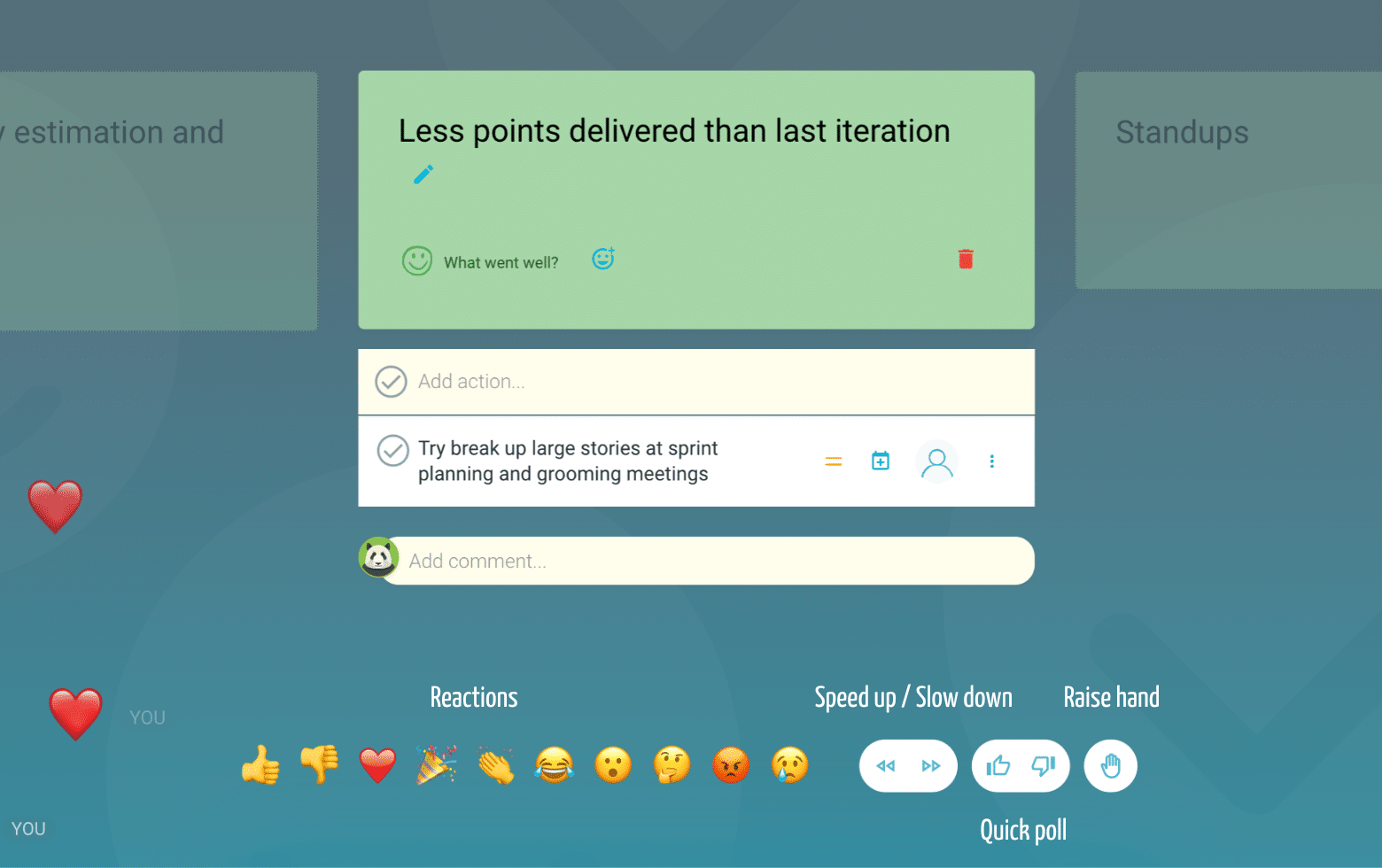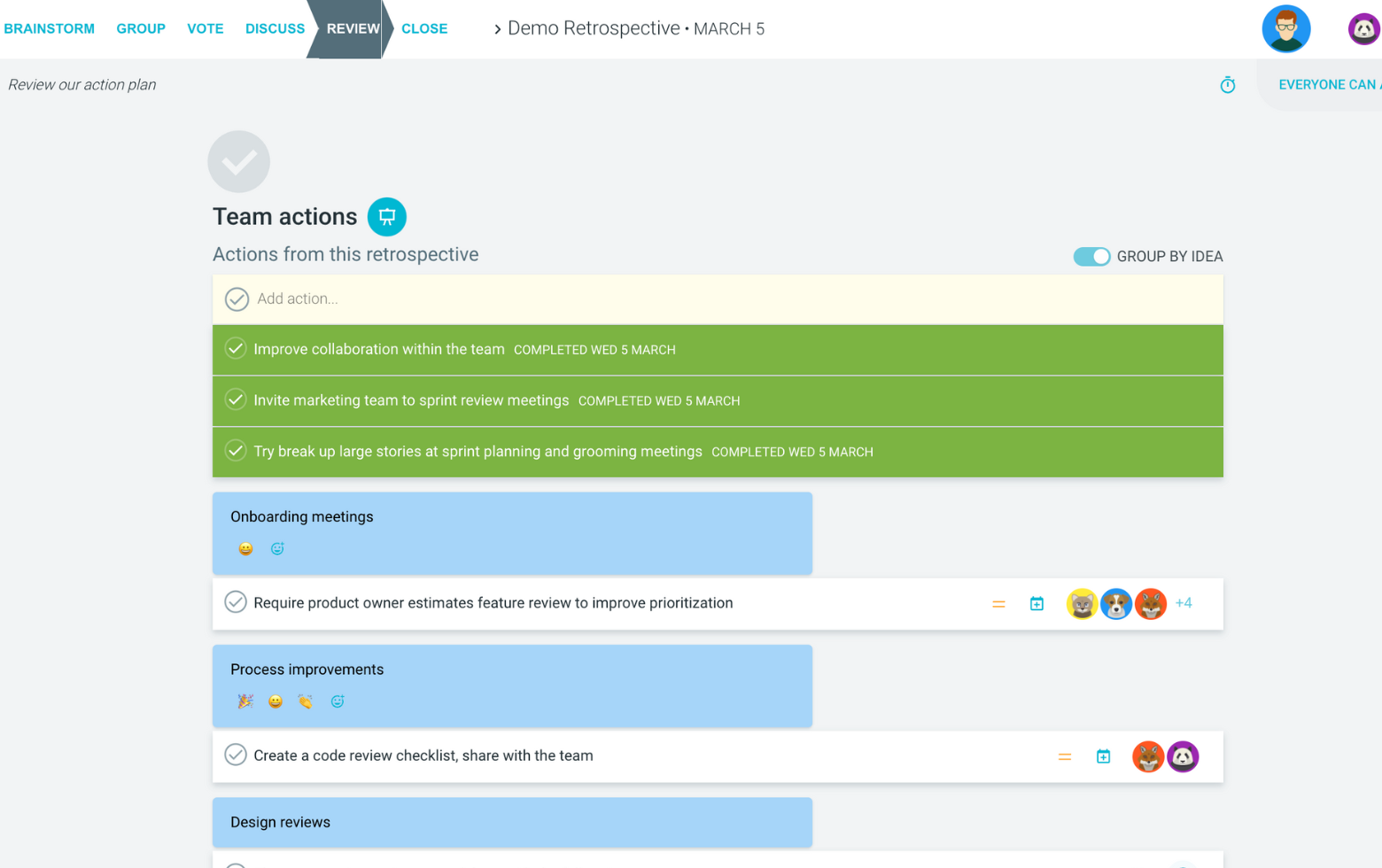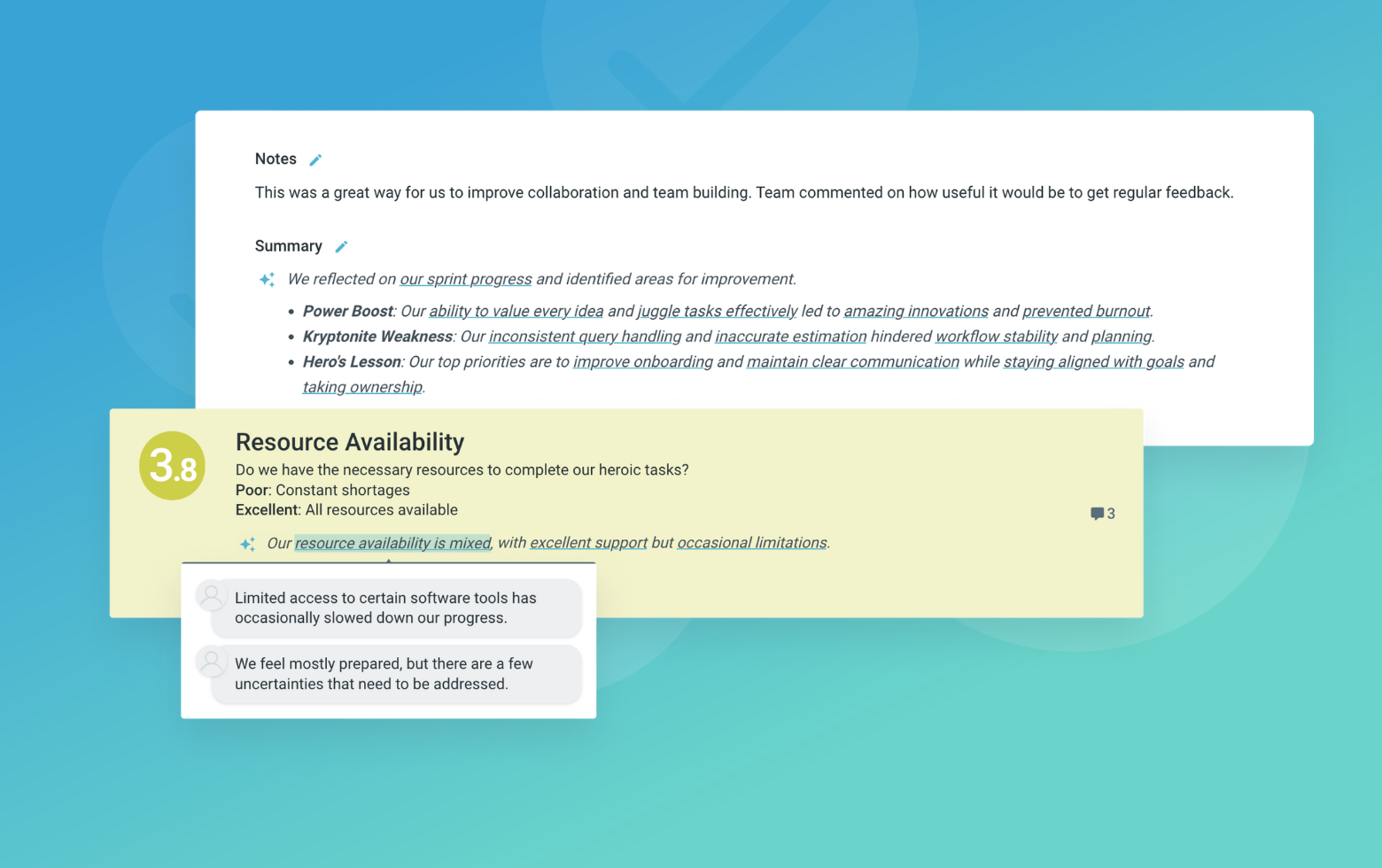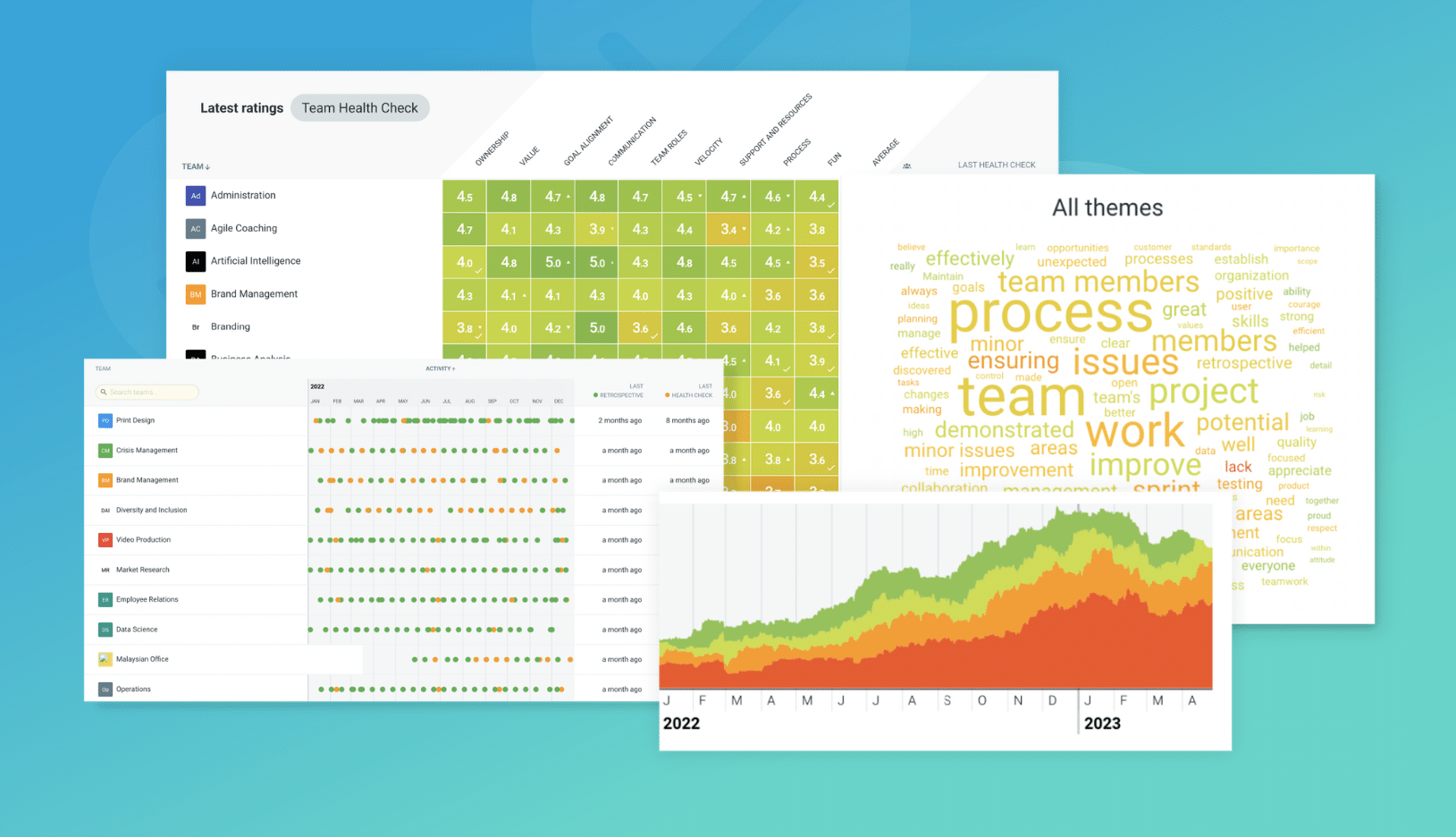The Starfish retrospective is a technique developed by Patrick Kua to help teams reflect on varying degrees of actions and activities rather than simply the traditional what went well or what did not go well. The five key areas explored are:
1. Start: New practices or initiatives to begin. 2. More of: Existing strengths to amplify. 3. Continue: Positive aspects to maintain. 4. Less of: Areas that need scaling back. 5. Stop: Unproductive or detrimental activities to discontinue.
By categorizing feedback into these actionable sections, teams can easily pinpoint growth opportunities and develop a clear plan for the next iteration. The Starfish retrospective promotes open discussion, continuous improvement, and team alignment.
What is The Starfish Retrospective
Start
What new practices or initiatives should we start?
Encourage the team to think creatively about untapped opportunities.
More of
What existing strengths should we do more of?
Highlight the team's positive attributes and successful approaches.
Continue
What positive aspects should we continue?
Reinforce the practices that are working well for the team.
Less of
What areas need to be scaled back or reduced?
Identify areas of overemphasis or inefficient use of resources.
Stop
What unproductive practices should we stop?
Encourage the team to let go of habits or processes that are no longer serving them.
Suggested icebreaker questions
- If our team was a type of fish, what kind would we be and why?
- What's one thing you've learned recently that has made you more effective at work?
Ideas and tips for your retrospective meeting
- Encourage open and honest feedback by creating a safe, judgment-free environment.
- Assign a dedicated facilitator to guide the discussion and ensure all voices are heard.
- Focus on actionable items rather than dwelling on past mistakes or assigning blame.
- Prioritize the most impactful items and create a clear action plan for addressing them.
- Follow up on action items in subsequent meetings to ensure accountability and progress.
.
How to run effective meetings with TeamRetro
Start Your Session in a Click
Log into TeamRetro and choose your template. Customise questions and the workflow to create your perfect retro for your team.
Create Your Team Easily – No Separate Accounts Needed
Brainstorm Individually – Free From Bias
Smart Grouping for Faster Insights
Fair, Flexible, and Fast Voting
Engage, React, and Capture Key Insights
Walk your team through ideas one by one with Presentation Mode. Stay in sync, spark real-time discussions, and capture feedback with comments, live reactions, and polls—all in one place.
Turn Ideas Into Action
Propose next steps with team buy-in, get AI-powered action suggestions, and keep everything in one place. Committed actions sync to your personal dashboard and integrate with your workflow tools—keeping you on track.
Save, Share, and Stay on Track
Get quick AI-powered summaries, add facilitator notes, and store retrospectives in your library for easy access. Schedule your next session and track published actions to keep your team accountable at the next retro.
Turn Team Data into Actionable Insights
Uncover trends, common themes, and key engagement metrics at a glance. Track sentiment shifts, analyze conversations, and monitor completed actions to drive continuous improvement.
